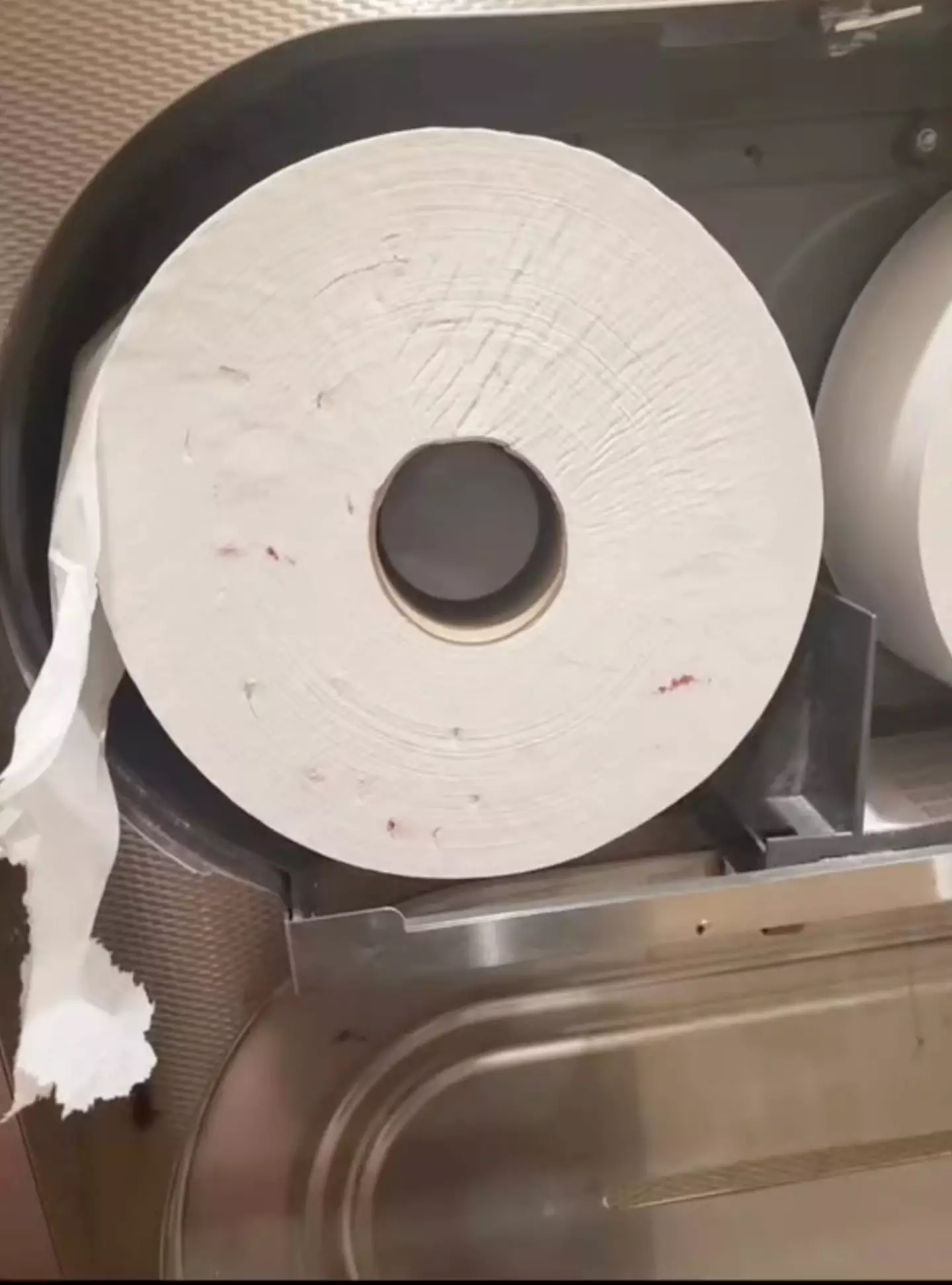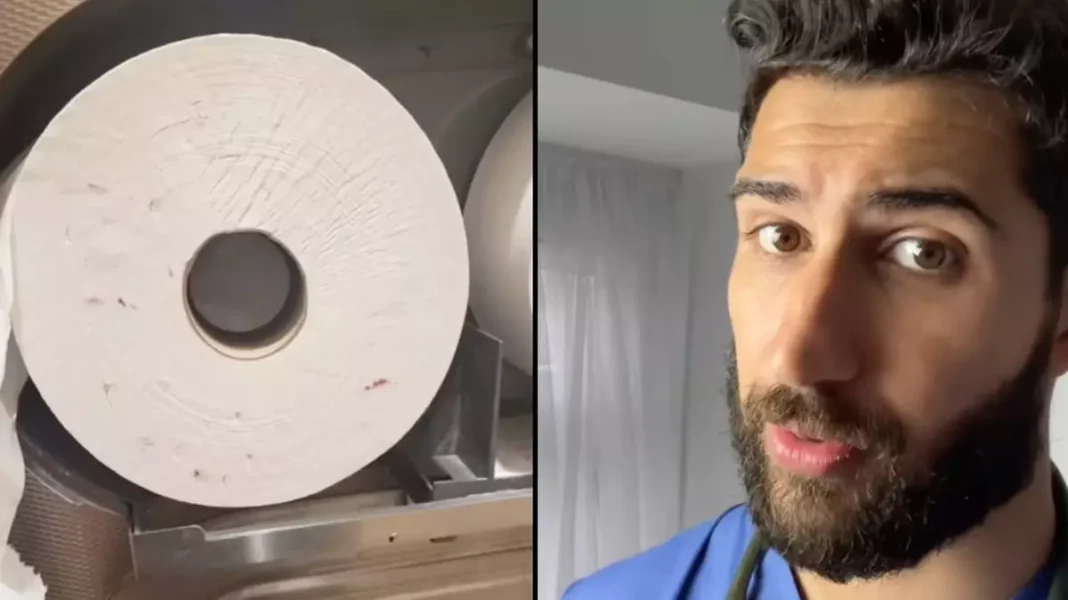Public bathrooms often aren’t the nicest places to relieve yourself, but sometimes, you’ve just got to go.
But if you ever head inside of a cubicle and spot some suspicious-looking marks on the toilet paper, you better make a swift exit and cross your legs until you get home, according to this UK doctor.
Dr Sermed Mezher, better known online as @drsermedmezherexplains, often shares useful health advice on social media to educate his followers.
So far, he’s filled us in on the common signs of ADHD, why you can never feel a mosquito bite, why we should forget the ‘five second rule’ and why we see strange patterns when we shut our eyes.
Now, the award-winning doctor from London has managed to ‘unlock a new fear’ for a lot of people after explaining why they should be wary of toilet roll which looks like it could have been tampered with.
In a video uploaded to TikTok, Dr Mezher said that, although it is unlikely you will encounter this, it’s better to be safe than sorry or gamble with your health.

Dr Sermed Mezher shared his toilet paper warning to TikTok (TikTok/@drsermedmezherexplains)
He explained: “Do not use it. That’s because these marks are signs that intravenous (IV) drug users are trying to clean their needles to be able to reuse it again.”
Basically, there is a possibility that people injecting themselves with substances might have attempted to clean the needle they used by pushing it into a roll of toilet paper – subsequently leaving some blood residue on the tissue.
Sharing needles, syringes and other injecting equipment makes IV drug users vulnerable to a wide range of health problems, including blood-borne illnesses such as bacterial infections, HIV and hepatitis.
And if they have any of these diseases and wipe their blood on bog roll in a public bathroom, it could put others at risk.
Dr Mezher said: “IV drug users who lack access to sterile equipment may try to clean their used needles with toilet paper in public restrooms, believing it will reduce the risk of infection.
“However, this method is ineffective in properly sterilising the needle. Toilet paper is not designed for sanitation and can even carry bacteria or other contaminants.

The medic explained there is still a risk of transmission even if the blood has dried (TikTok/@drsermedmezherexplains)
“Needles that have been used for injecting drugs often contain blood, which may be infected with blood-borne pathogens like HIV, hepatitis B, or hepatitis C, ” the medic continued.
“Wiping the needle with toilet paper does not remove or kill these viruses.
“In fact, the blood and viruses can remain on the needle or transfer to surfaces like sinks, toilet seats, or dispensers.”
He explained that the ‘risk of transmission’ for healthcare workers who have direct impact with blood ‘when it is still wet’ is one in three for hepatitis and one in 300 for HIV, but it’s a different ballgame for dried blood on toilet roll.
“The risk of transmission if something has dried up like this is significantly lower, but it’s still possible,” Dr Mezher said.
“While the viruses that cause HIV or hepatitis don’t survive long on surfaces, there is still a potential for indirect exposure, especially in unsanitary conditions of if someone comes into contact with fresh blood,” the doctor added.
Although people were grateful for Dr Mezher enlightening them about this, a lot of social media users said his warning has put them of using public bathrooms altogether.
One said: “Well that’s a fear I never knew I had to have.”
Another wrote: “Note to self, carry my own toilet roll around from now on.”
A third added: “Reason 10278651 why I can’t use public toilets.”
A fourth commented: “I have a whole new phobia.”
While a fifth chimed in: “This is the type of information that I needed to know but also didn’t want to know.”






